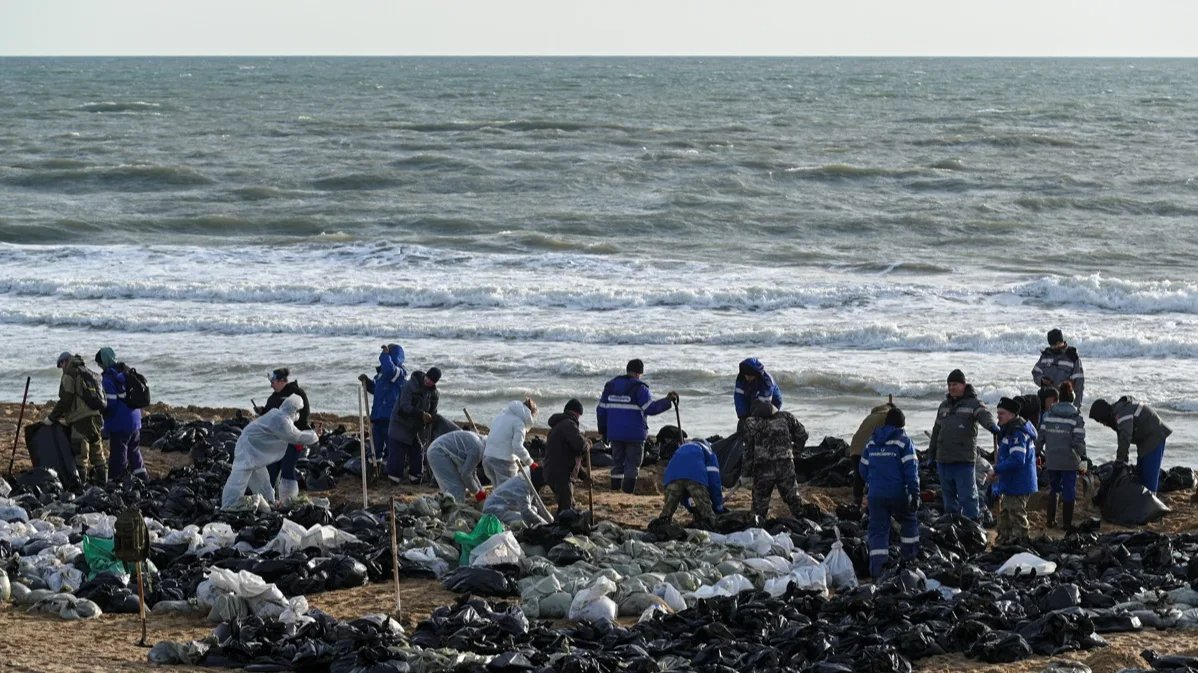
Volunteers work to clean up oil on a beach in Anapa in southern Russia’s Krasnodar region, 21 December 2024. Photo: Sergey Pivovarov / Reuters / Scanpix / LETA
Last month’s Black Sea oil spill is “21st century Russia’s most serious environmental disaster”, the scientific director of the Russian Academy of Sciences’ Water Problems Institute told Russian business daily Kommersant on Friday.
Viktor Danilov-Danilyan said that the spill of some 2,400 tonnes of oil had dealt a “devastating blow” to the Black Sea ecosystem and would result in the deaths of tens of thousands of birds and large numbers of dolphins, as well as “large losses to coastal flora and fauna”.
“In such an environment, even if it is in salt water, nothing can survive”, Danilov-Danilyan said, adding that the removal of hundreds of thousands of tonnes of contaminated soil would significantly alter the Black Sea coastline and lead to “enormous losses” for the area’s tourism industry.
The spill could have far-reaching environmental consequences beyond Russia too, Danilov-Danilyan warned, with the giant oil slick expected to reach the Ukrainian port city of Odesa by the end of the month, and potentially, depending on marine currents and wind patterns, the shores of Romania, Bulgaria and Turkey as well.
Stressing that the disaster could have been avoided if the vessels that ran aground had “been decommissioned as unfit for service 20 years ago”, Danilov-Danilyan criticised the delayed government response to the disaster, noting that volunteers were left to spearhead cleanup efforts alone for the first week, with the official response only beginning nine days after the accident.
On Wednesday, officials in Russia’s southern Krasnodar region, the area worst affected by the spill, said that 146 volunteers and cleanup workers had been forced to seek medical assistance in the past month. A 17-year-old clean-up volunteer from the city of Anapa died on Tuesday, his university announced, reportedly due to inhaling toxic fumes from the spill.
Meanwhile, the head Russia’s consumer rights and public health watchdog said on Thursday that laboratory tests on samples of seafood and fish caught in the Black Sea had found no evidence that they had been contaminated as a result of the oil spill and remained safe to consume.
